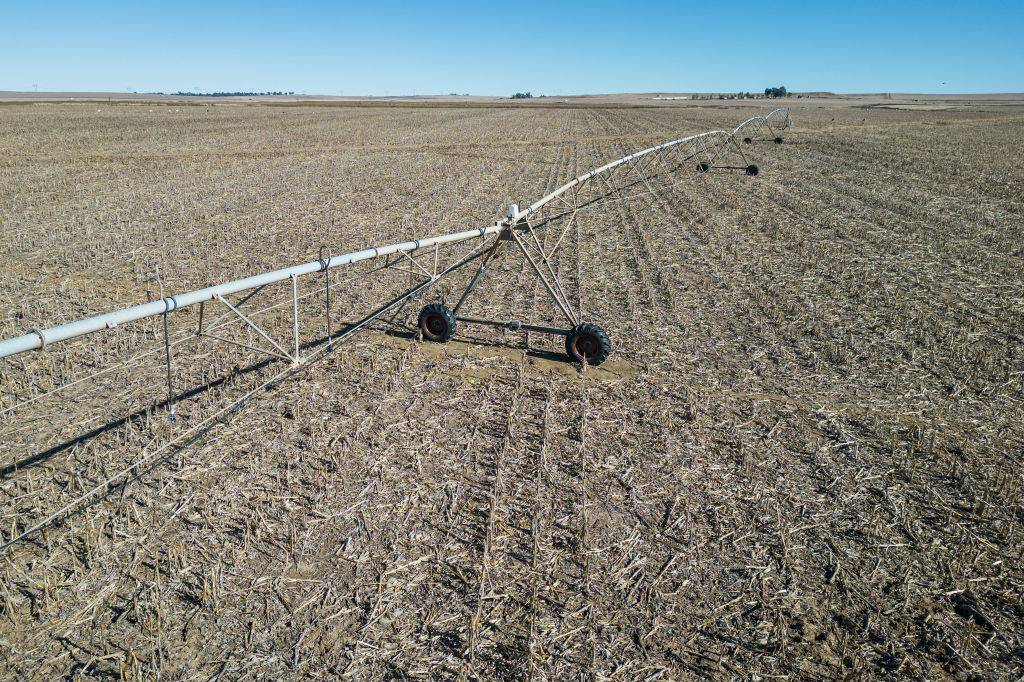A drought has been formally declared across large swaths of England, as the UK experiences its driest summer for 50 years, the Environment Agency said on Friday.
Drought status had been confirmed for eight of England’s 14 areas, spanning the south, east, south west and centre of the country, the Environment Agency said.
Although the declaration of a drought — the first since 2018 — does not automatically trigger new restrictions, it does require the Environment Agency and water companies to accelerate their actions to manage the effects of unusually low water levels.
The announcement, which followed a meeting of the National Drought Group, comprising government, the Environment Agency, water companies and groups such as the National Farmers’ Union, comes as the UK contends with its second heatwave in two months.
The latest spell of hot weather this week prompted the government to issue a public health warning, while a new record temperature of 40.3C was recorded last month in Lincolnshire.
The prolonged period of hot and dry weather had pushed river flows, soil moisture, groundwater and reservoir levels to much lower levels than normal, the government said. Demand for water had also recently increased in response to the very hot and dry conditions.
“We are currently experiencing a second heatwave after what was the driest July on record for parts of the country,” said water minister Steve Double on Friday.
“All water companies have reassured us that essential supplies are still safe, and we have made it clear it is their duty to maintain those supplies,” he added.
Five water companies across England and Wales have already announced temporary hosepipe bans this summer, which will affect more than 7.4mn people.
Hannah Cloke, professor of hydrology at the University of Reading, described the declaration of a drought as “overdue”.
“We need to plan longer term to cope with drought and water stress,” she said. “Some rain is forecast in the weeks ahead, but this is unlikely to be long-lasting or widespread enough to make a big difference to some exceptionally low levels in reservoirs and rivers.”
Ministers and water companies have urged the public to use water sparingly, while the Environment Agency said it was working with farmers to ensure they had the supplies they needed.
The government has also said it expects the industry to “act to reduce leakage and fix leaking pipes as quickly as possible”. Some “20 per cent of [the UK’s] mains water supply is lost to leakage” daily, according to the House of Commons environmental audit committee.
The London Fire Brigade on Thursday warned of “tinderbox dry” conditions, which it said had created an “exceptional fire risk across London”, as it urged people not to have barbecues. Supermarkets including Sainsbury’s and Tesco have temporarily halted sales of disposable barbecues in light of the fire risks.
England experienced its driest July this year since 1935, and since records began for the east and south east of the country. The government said some rivers were at the lowest levels ever recorded, while the dryness of soils was comparable to the end of the 1976 drought.
The Environment Agency has asked Yorkshire Water to halve the amount of water it takes from the Holme Styes reservoir in Yorkshire to 1mn litres a day, to prevent it from “running dry”. The company on Friday announced a hosepipe ban that will affect 5mn people.
As climate change accelerates, summers in the UK are expected to become dryer, while extreme weather events will become more frequent and intense.
The National Drought Group will meet again on August 23.





















Discussion about this post